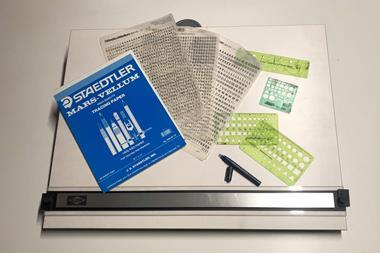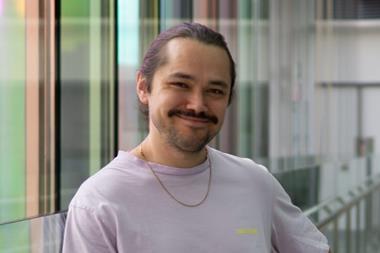Five tips for communicating your research
Writing a thesis is an inevitable part of a chemistry PhD. Yet it can be a daunting task. While everyone’s personal circumstances vary – university rules, the chemistry discipline and supervisor relationships – the most difficult part is actually starting to write. Adam Clancy of University College London, UK; Chiara Giorio of the University of Cambridge, UK; and I (a recent PhD graduate) reflect on our experiences to offer some advice and tips.
Start writing early
Ideally, if you receive funding you want to finish before the money stops coming in. ‘It’s such an appealing thing to think one more experiment will pull everything together,’ says Clancy. ‘It’s better to just draw a line in the sand in advance.’ This was a goal I set myself, and it proved to be a catalyst to my productivity. Clancy’s experience was different: ‘I got a postdoc and then wrote in the evenings, which was a terrible, terrible idea.’ Sometimes though, a promising job offer or unforeseeable circumstances means this is your only option for completion. Whatever your circumstances, Giorio advises ‘to write as much as you can, every day,’ even if it’s just experimental procedures or summaries.
For me, getting started was the hardest part. Thinking of a thesis as a series of small, manageable chapters rather than a whole book helped me compartmentalise. Once you start writing, you build up momentum. Having something that you can look back at as a starting point is better than staring at a blank page.
Make a plan
Devise a workplan with your supervisor before you start writing. ‘It should be a discussion with them about where they think the good results are – how you can split up all your work into manageable, multiple sections,’ explains Clancy. Spend time ‘understanding what are the key messages that you want to get across,’ says Griorio. During writing, send chapters to your supervisor for revision and go over them together. ‘The first draft doesn’t need to be perfect’ – and it won’t be – but this will give you a better idea of what your supervisor expects. ‘The first time you write something, it’s very difficult,’ Griorio explains, so it’s good to solicit feedback early on. But it’s not just your supervisor you can ask – peers, friends and family can contribute ‘even if only catching typos’, she adds.
No need to work sequentially
Start with the chapter you’re most comfortable working on – you don’t need to write the thesis in order. I found switching between chapters helped. Some days I had brain fog when writing up my results so I would work on the literature review and come back to writing up the results when I had the mental capacity. The structure of the thesis also does not have to be chronological: Clancy used what he did towards the end of his PhD to form his first results chapter. ‘You’re not recounting what you did for three years,’ he explains. ‘It shouldn’t be a biography of your research.’
Figures are your friends
Images can reveal a lot about your work. ‘I’m a fan of basically never really needing words,’ reveals Clancy. ‘It’s worth taking the time to make your graphs look highly presentable and really clear.’ Graphs and images are not only useful in breaking up large bodies of text, but they also provide context and meaningful data for your discussion. ‘You can start with just putting some figures together and some bullet points,’ says Giorio, noting that graphs assist with the initial hurdle of getting something written down. Clancy suggests you ‘go to the papers you like and see how they present data and be inspired by that’. Don’t take shortcuts with figures – a lesson I learned. I had to do corrections on my graphs after my viva that could have easily been avoided if I had been more diligent when producing the figures in the first place.
Don’t worry
You are an expert in your research so be confident about your writing. ‘If you’ve got to this point, you’re probably good enough to pass a PhD,’ Clancy says. You have put in years of work and all you must do now is communicate it. But don’t let writing consume your life – take regular breaks, keep active and balance your time with hobbies and friends. By taking care of your physical and mental health, you will be in a better position to deliver your best work.
I found the writing process unexpectedly fun and therapeutic. There were days when nothing would come to me, but I would say ‘tomorrow is a new day’. Try not to put too much pressure on yourself. At the end of it, you will hopefully look at your thesis with pride and a sense of accomplishment.


















No comments yet